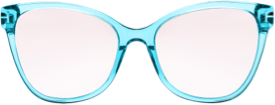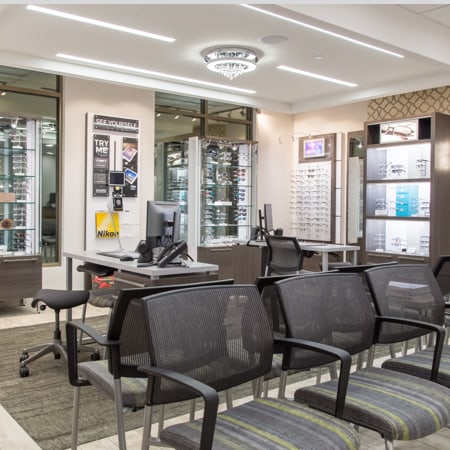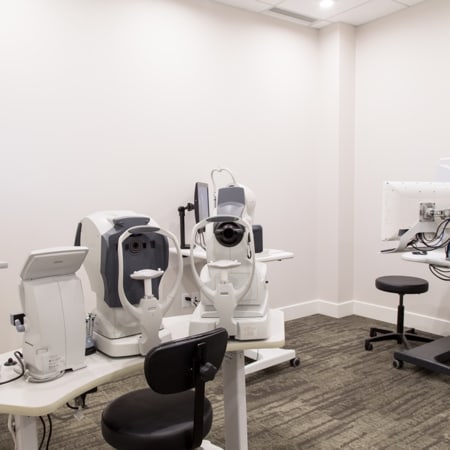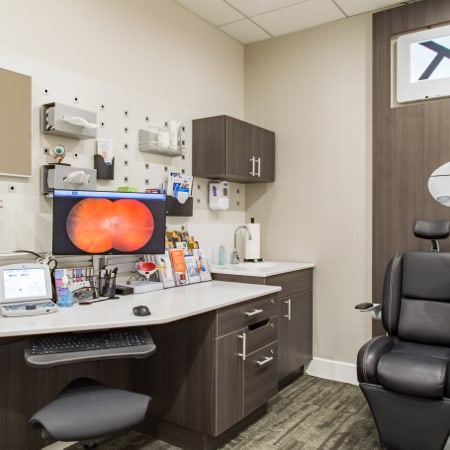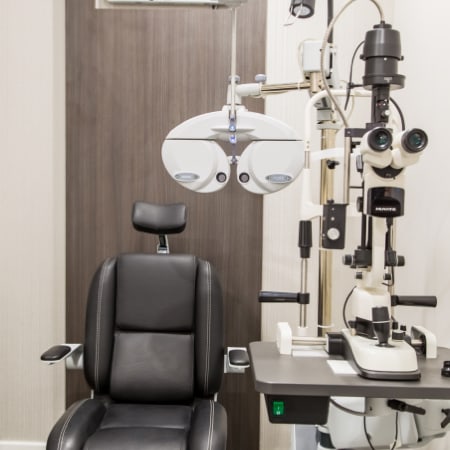Sunglasses can give you instant Brad Pitt cool, Madonna glamour, or the or the rock star look of Bono. But these stylish frames are far more than a fashion accessory. Sunglasses are an essential tool in keeping your eyes and the surrounding tissue safeguarded from the harmful effects of the sun.
Here’s are some helpful tips regarding sunglasses, how they can help you, apart from style, and how to select one that is right for you.
Eye on UV Risks
Just as the sun’s ultraviolet (UV) rays can damaging effects on the skin, they can also harm the cornea, lens and retina of the eyes. UV radiation increases your risk of developing cataracts, clouding the eye’s lens leading to foggy vision and even blindness. It has also been linked to an incurable disease of the retina, macular degeneration, where it affects essentially all detailed vision the eye can perceive. Other UV-related eye problems include developing a pterygium and pingueculum. A pterygium occurs when the conjunctiva, the tissue overlaying the white part of your eye, grows into the cornea, the clear part of your eye. A pingueculum is a yellowish bump of tissue that grows on top of the white part of the eye.
Sunlight that bounces off highly reflective surfaces such as water and snow or even sand and pavement can be especially dangerous. Sunglasses play a vital role in shielding the fragile tissue around the eye, says W. Lee Ball Jr., OD, an optometrist at Harvard Medical School’s Beth Israel Deaconess Medical Center. “This skin, including the eyelid itself, is very thin and vulnerable to skin cancer. This is something especially troubling since dermatologists are reporting an epidemic in all types of skin cancer," Ball says. Sunglasses will protect not just against melanomas, basal cell or squamous cell carcinomas, but will also help prevent against the formation of wrinkles like crow’s feet or the thickening of the skin that can sometimes be caused by UV exposure.”
Make Sunglasses a Daily Habit
Very much like sunscreen, sunglasses should be worn whenever you’re outdoors, all year round. Sunglasses are not just for the summer months. As many of us have learned, you can get a really nasty sunburn on an overcast, hazy day. If the sun can damage your skin on those days you’re exposing your eyes to the damaging UV rays too! Sunglasses are especially important for children. UV damage to the eye is cumulative over a lifetime and children can accumulate up to 80% of their lifetimes UV eye damage before the age of 18!
Protecting your eyes from the sun begins with picking the right pair of sunglasses. Here’s advice from eye care experts.
• Look for Complete UVA/UVB Protection• Choose sunglasses that provide full protection against UV light. Look for a label or a sticker that
says one or more of the following:
• Lenses block 99% or 100% of UVB and UVA rays
• UV 400 protection. (These lenses block light rays with wavelengths of up to 400nm This means that your eyes are shielded from even the tiniest UV rays.)
Opt for Polarized Lenses If You Spend Time on Water
Polarized lenses reduce glare by filtering out the reflected sunlight that bounces off surfaces like water or pavement. They’re a great option for boaters or water skiers, and also the general public as they can cut down on glare from flat, smooth surfaces like pavement or the hoods of cars.
There is however a downside: It can be difficult to read your cell phone, GPS device, or any LCD screen on a dashboard or ATM machine with polarized lenses.
Buyer beware! Polarization has nothing to do with UV protection. So check the label to make sure the sunglasses provide full UV filtering on top of the polarization.
Consider the Quality of the Lenses
Eye care experts attest that price isn’t exactly a gauge of the quality of UV protection. However, very inexpensive sunglasses are likely to contain lenses that are stamped out of a mold rather than ground and polished. This can greatly affect optical quality of the glasses leading to decreased clarity of vision.
Consistency is a concern with lower-priced glasses as well. You could find one pair that offers great clarity, and another pair of the very same brand and model that has highly distorted lenses.
To test optical quality, the FDA suggests focusing on a vertical edge or line. Move your head back and forth, allowing your eyes to sweep across the lens. If there is any wiggle in the line, then the lenses may have an optical defect and you should choose another pair.
Bigger is Better
Wraparound sunglasses offer some of the broadest protection against UV damage because they block more of the light that hits your eyes from the sides. Sunglasses with large lenses and wide temples are the next-best option. Large lenses also cover a wider area of skin, so there’s a decreased window for UV penetration. Sunglasses that come down to your cheekbones are an excellent choice.
Fit Matters
Sunglass frames should fit snugly on your nose and ears without pinching or rubbing. To prevent light from sneaking in and around behind the glasses, choose a pair that fits close to your face around the brow area, but not so close that your eyelashes rub the lenses when you blink.
Whether you opt for high-priced designer sunglasses or a more affordable pair you find at your drugstore, you can easily find sunglasses that are flattering, functional and will protect your eyes from the harmful effects of the sun!



